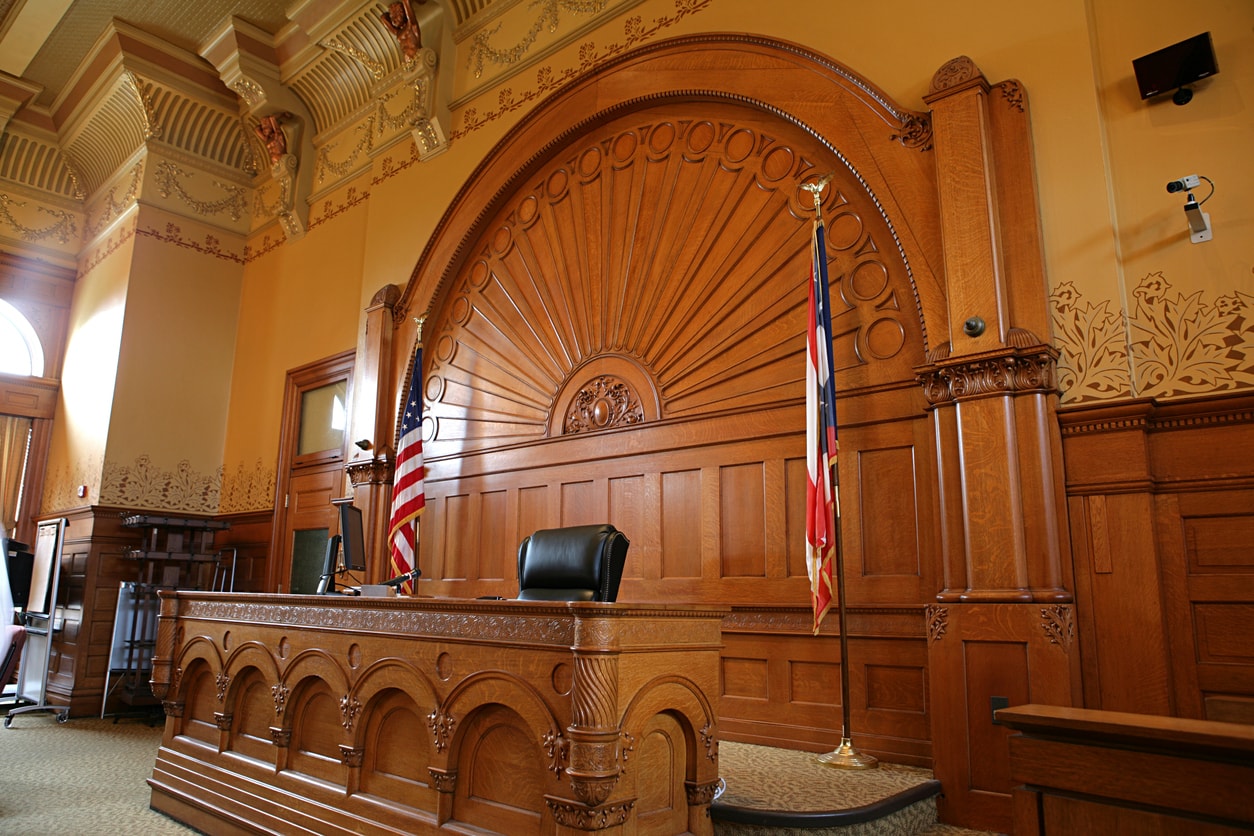
By Hon. Dennis Challeen (Ret.)
I remember a very good trial attorney who had a closet full of used sport coats and ties that he used to dress up his criminal clients when they came to court. He even threw in a shave and haircut to boot. I knew what he was up to, but he wasn’t trying to fool me, it was the jury he had in mind.
Another lawyer would bring a law book into the courtroom; open it to any random page, then leave the courtroom. His opponent would slyly inch over and glance at the page number, write it down and head for the law library to read what was on that page to get an idea of what his opponent was planning to spring on him during the trial. The problem was there was no secret plan; it was random and not relevant to the case at all, except to cause the “sneak peeker” an uneasy day of research wondering about how this information had any relevancy to the trial.
Many times in small claims court, where people try their own cases before a judge (lawyers and juries are not allowed), I would sometimes observe litigants bring a Bible and place it on the counsel table in full view for me to see. This was an obvious attempt to show they were honest religious people who would never tell a lie. One in particular was sued a lot; I suspect in his daily business dealings he didn’t always apply biblical teachings. (Particularly the parts about lying and hypocrisy.)
And I recall in small claims court a man who had an obvious dislike for his opponent. He said to me, “Judge, you can’t believe a word he says; he grew up in a tavern.” Problem: I grew up in a tavern; my folks ran a small resort and a 3.2 beer joint in Northern Minnesota.
A couple of lawyers related how they misread the appearances of others:
The lawyer was questioning a juror and asked whether being pregnant would be a strain on her having to sit during a long trial. Problem: She wasn’t pregnant.
The other lawyer, who was meeting an out-of-town judge for the first time, wanted to make a good impression. He commented on how nice it was that the judge brought his mother along. Problem: It was his wife.
A judge in a neighboring county was a stickler for demanding that lawyers must all be properly attired in his courtroom according to the Rules of Courtroom Decorum. As the judge was walking down the hallway he stopped and glared at a man standing outside the courtroom and pompously proclaimed that he better not even think about coming into his courtroom dressed that way. The poor guy was a witness, not a lawyer, and the rules did not apply to him; the judge had mistaken him for a local lawyer. The poor frightened witness ran over to a clothing store and bought a dress coat and tie so he could testify.
During the Civil War it was common practice when outnumbered by the approaching enemy to install what they called “Quaker Cannons.” They were not military cannons at all but harmless wooden logs painted black and humorously called “Quaker” because of the Quakers’ (The Society of Friends) religious opposition to any form of violence or war. They would also move troops around the front making noises, burning many campfires while drummers played marching beats all to make the advancing foes believe they were facing forces much larger than their actual number.
Then there was a Texas judge who presided over a jury trial in which a “rather unusual” defendant was charged with creating a public disturbance involving the police. His defense was he was doing his “patriotic duty as an American” and was representing himself without an attorney. As the trial was about to begin, the defendant stood up and, facing the American flag with his hand over his heart, began to recite the Pledge of Allegiance to the Flag. Immediately the jury stood up and joined in. The judge, when asked if he let this rather odd man take over and run his courtroom, laughed and replied, “Hell, yes, I have to run for election in that county, and I’m not going to appear unpatriotic.”
And so, there is truth in the old sayings: “Don’t believe everything you see … and never judge a book by its cover.”
Do you have funny stories to tell from your experiences on the bench or that you’ve heard from other judges? We’re considering collecting them into a book for posterity. Email them to: njc-communciations@judges.org

The Hon. Mary-Margaret Anderson (Ret.), a retired administrative law judge with the California Office of Ad...

Happy October, Gaveliers faithful. Are you loving this or what? No one believed a team made up of judges...


Hon. Diane J. Humetewa, the first Native American woman and the first enrolled tribal member to serve as a ...

Retired Massachusetts Chief Justice Margaret H. Marshall has been selected as the 2024 winner of the presti...
